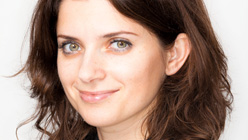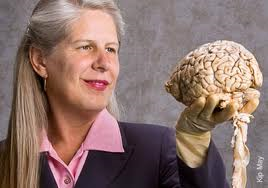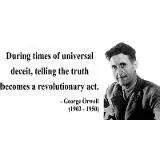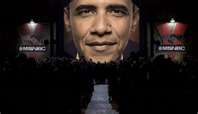Some recent superhero movies have looked at the subject of genetic research and the implications of transhumanism. Thanks to the science behind Operation Rebirth’s serum, Steve Rogers is a super-soldier with physical strength and skills far beyond ordinary human capacities. Peter Parker’s superhuman powers are the result of a genetically-engineered spider’s bite, and his many of his nemeses, Lizard, Carrion, Jackal, Kaine, for example, are all products of bad genetic science. Hell, at OSCORP, it’s standard operating procedure. And, as mutants, the X-Men are transhuman outcasts whose powers put them in a precarious position in terms of how they view and relate to ‘normal’ humans.
These stories can be seen as Frankenstein-like morality tales meant to warn us about the dangers lurking up head if we lunge blindly into the brave new world of liberal eugenics. Setting aside the use of genetic technologies for the repair of injuries and treating diseases, which is of course less controversial, these stories raise an interesting ethical issue, the Marvel Dilemma: is it morally permissible to improve an otherwise healthy human body so one could run as fast as Cap or react as quickly as Peter Parker?
Among the moral philosophers weighing in on the ethics of biotech, Peter Singer represents one side of the Marvel Dilemma. He believes that, while we should be concerned with possible negative side-effects of enhancement, we must accept it’s inevitability and find ways of minimizing the downside while maximizing the ways improved bodies and minds can benefit society overall. Michael Sandel, on the other hand, questions not only the inevitability of a genetically-enhanced human race, but more importantly, the motives behind the desire to improve, a drive he finds morally suspect. Sandel’s argument praises the X-Men factor, the virtue of valuing life’s unexpected gifts.
In “Shopping at the Genetic Supermarket,” Singer considers whether a genetically-enhanced life could be happier, more pleasurable as well as the kinds of policies governments could adopt in order to ensure the positive effects outweigh the negative ones. As a utilitarian philosopher, he dismisses arguments based on prohibitions against ‘playing God’ or duties to moral law, focusing instead on measuring and evaluating likely consequences. “I do not think we have grounds for concluding,” he says, “that a genetic supermarket would harm either those who choose to shop there, or those who are created from the materials they purchase.”
Where many are repulsed and even terrified of the idea of designer babies, we must not forget that parents are constantly trying to design their children through what they feed them, teach them, what and who they allow their kids to play with and so on. It is a parent’s job to design his or her kid. The difference is pushing the techniques deeper into the prenatal phase, all the way to the genetic level, which we are becoming better and better at manipulating. Who wouldn’t want a child who is more likely to become a fit, smart, and emotionally-stable person? If you think it is wrong to tinker with ‘Mother Nature’ and decide to leave things to chance, wouldn’t you be doing your kid a disservice? After all, they will one day have to compete in the classroom, on the playing-field, in the boardroom with people whose parents chose to enhance. In deciding not to, you would be putting your child at a considerable disadvantage. Couldn’t that be seen as, to some degree, a form of abuse?
Singer doesn’t see anything intrinsically wrong with buying and selling gametes. A society of genetically-enhanced children could be a happier, healthier one, if properly regulated in terms of safety and equal access. The big fear, of course, is of the 1% who can afford the enhancements becoming a super-race who will lord it over the 99%, thus ensuring a dystopic nightmare for the rest of us. Singer’s solution is this:
“Assuming that the objective is to avoid a society divided in two along genetic lines, genetic enhancement services could be subsidized…the state should run a lottery in which the prize is the same package of genetic services that the rich commonly buy for themselves. Tickets in the lottery would not be sold; instead every adult citizen would be given one. The number of prizes would relate to how many of these packages society could afford to pay for, and thus would vary with the costs of the genetic services, as well as with the resources available to provide them. To avoid placing a financial burden on the state..the state should be directly involved in promoting genetic enhancement. The justification for this conclusion is simply that it is preferable to the most probable alternative – leaving genetic enhancement to the marketplace.”
So while Singer believes in a kind of genetic affirmative action, Michael Sandel takes a step back from the issue and asks a more fundamental question: why enhance at all? In “The Case Against Perfection,” Sandel explores what is at the heart of our ambivalence towards these technologies. “The question is,” he says, “whether we are right to be troubled, and if so, on what grounds.” He concludes that:
“[T]he main problem with enhancement and genetic engineering is…that they represent a kind of hyperagency—a Promethean aspiration to remake nature, including human nature, to serve our purposes and satisfy our desires…what the drive to mastery misses and may even destroy is an appreciation of the gifted character of human powers and achievements.”
As a virtue ethicist, Sandel judges the permissibility of an act, first and foremost, in terms of the desire motivating it, and what Sandel sees here is hubris and anxiety—terror masked as transhumanist optimism—a “one-sided triumph of willfulness over giftedness, of dominion over reverence, of molding over beholding.” What we fear, what we want to master, is the unknown, the unbidden, the contingent. We once called this aspect of life ‘Fate’ or ‘God’s plan,’ the mysterious unfolding of events whose causes are so complex we can’t learn how to anticipate them and fear having to endure them. So why anticipate and endure them at all? Why be open to randomness? Why not master and eliminate the unbidden? Why not deny nature’s strange ‘gifts’ and order what we want ahead of time, so there are no surprises, no unfathomable errors?
Sandel says it is because the motivation is a sign of weaknesses, not strength. The desire to completely remake the world and ourselves in an image of our choosing actually closes life off, enframing the human experience in a hall of mirrors. It shows a lack of courage. “[O]penness ,” he says, “is a disposition worth affirming, not only within families but in the wider world as well. It invites us to abide the unexpected, to live with dissonance, to rein in the impulse to control.” Furthermore, Sandel argues, this disposition will promote humility, solidarity, and responsibility—invaluable virtues in protecting the integrity of our moral landscape.
Sandel’s approach sheds light on the psychology behind the escalation dilemma. Enhancement, the added value of a genetic alteration, needs a baseline in order to measure the degree of improvement. We won’t be able to make rationally-based value judgments unless we have a standard against which to measure them. For example, potential parents decide they want to have a girl who will grow up to be ‘tall’ because they read an article claiming that, in a workplace environment, taller women are perceived to be more powerful and competent, and therefore, tend to be more successful. Let’s say, five feet and eight inches is the current standard for being a ‘tall woman,’ so they get the doctor to alter the gametes to code for five feet, nine inches.
Now, how many other parents have read this article, too? How many other parents want to give their little Jenny the best chance for success? How many females will be born with the five feet, nine code? Pretty soon, five feet nine won’t be ‘tall’ anymore. It will be ‘the new normal.’ We’ve shifted the baseline, and the drive to enhance has to up the ante, and, within a few years the new mark is six feet and so on. If the motivation is improvement for the sake of improvement, or out of fear of that, since other parents are enhancing you are putting your child at a disadvantage, then the benchmark that defines enhancement will keep ratcheting up exponentially until the positive feedback loop unhinges and spins out of control.
This isn’t about the fear of meddling in ‘Mother Nature’s business.’ You don’t have to posit an essential ‘human nature’ or appeal to God’s laws in order to make sense of an argument against this kind of enhancement. ‘Human nature’ is and has always been a dynamic product of technological improvement from the mastery of fire right up to Lasik surgery and Google Glasses. Human nature isn’t a thing, a substance with a fixed set of properties to be meddled with. It is a dynamic, evolutionary process of integrating our genetically-based bodies with whatever ecological contingencies history brings to the equation. Culture is the part of our nature we invent in order to better ensure our survival. So we change ‘human nature’ each time we adapt to a new set of factors. The question is, what is pushing us to change the rhythm of the process in such a deep and radical way?
Some say it is already happening and is going to continue to happen. Pandora’s Jar is already open, and you can’t stop the genetic arms race now. Singer says you might as well learn how to manage the process so we maximize happiness and do the greatest good for the greatest number. But where is the autonomy, the free-will, in that forecast? Are genetically-enhanced superhumans as inevitable as entropy and the heat death of the universe? Or can we make choices that impact the future? If so, individuals will collectively have to decide to enhance or not. We will have to take a position and express an attitude that will influence the way these technologies are viewed and used. The virtue ethics approach in Sandel’s argument says we shouldn’t encourage it. If what motivates the desire for mastery are mere vanity and pure anxiety, we should condemn or strongly discourage the use of genomic technology for personal ‘improvement’ and look down on those who do. The question is, are we willing to confront the lack of courage that often drives our perfectionist fantasies and, thanks to the laws of technological acceleration and unintended consciousness, could possibly become the source of our damnation instead of salvation.
So the answer to the Marvel Dilemma isn’t to escalate enhancement, like in the world of OSCORP, but to the embrace the X-Men ethic of being more accepting toward the unbidden and biologically-given, learn to tolerate and have faith in each other. Granted that there’s a clear distinction between treatment and enhancement (and there are limit cases where this isn’t cut and dry), we should strive to use genetic technology to prevent disease and suffering, but not to enhance an otherwise healthy human body, especially when the motivation behind the changes isn’t a virtuous one. Perhaps we could prevent the self-fulfilling nightmare of a genetic arms race if we owned up to the negative emotions inspiring it in the first place. This would not lead to human ‘enhancement,’ after all, but a tragic dehumanization cosmetically-masked as ‘progress.’ Why not channel the time and money to genetic solutions to over-population, food and energy shortages, and global warming instead? We often think of using this tech in terms of supersizing ourselves, but, as Singer points out, we could just as well use it to downsize ourselves, lowering the amount of food and energy we need to consume. Wouldn’t that be better for the planet and the future of humankind?















